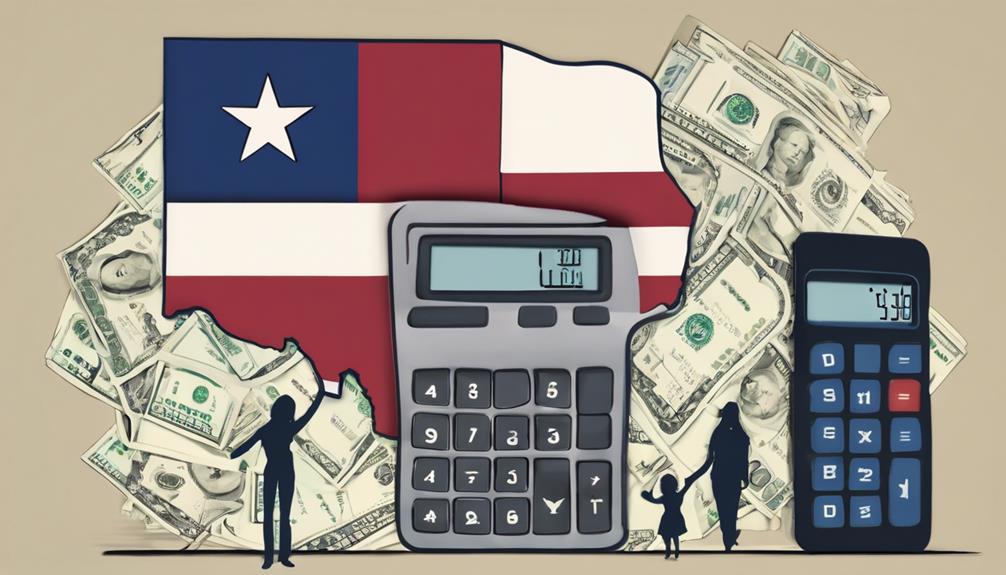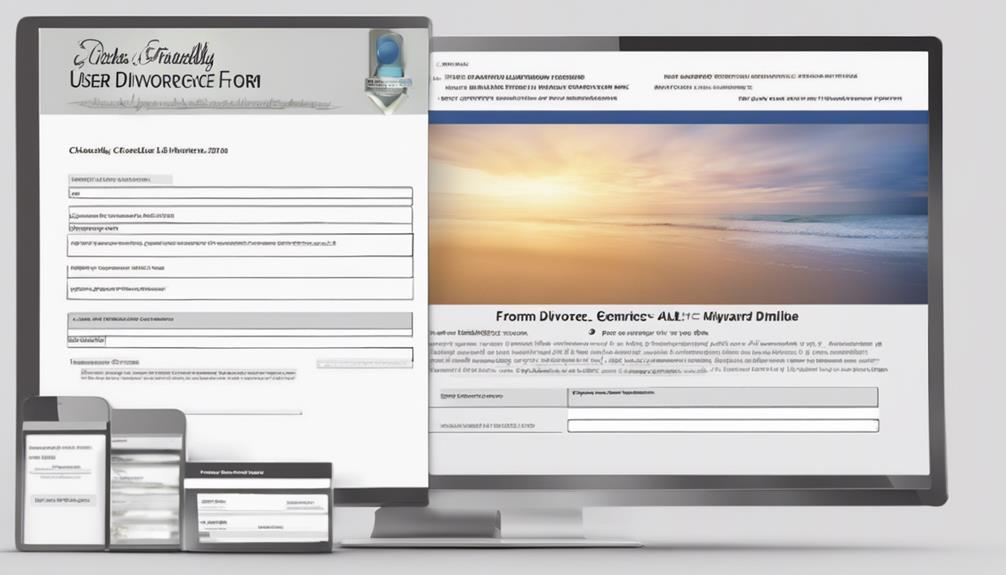Navigating the legal requirements for divorce in different countries can be a complex and challenging process. In this important guide, we will delve into the divorce process in Guatemala and the legal factors that individuals should keep in mind.
When it comes to getting divorced in Guatemala, it is important to understand that the process is governed by the Civil Code. Whether you are seeking a divorce through mutual agreement or facing a contested process, it is crucial to familiarize yourself with the legal implications and requirements.
One of the first steps to consider is hiring a lawyer, particularly if your case involves disputes over assets, child custody, or spousal support. A knowledgeable lawyer can provide you with invaluable legal advice and representation throughout the divorce proceedings.
In Guatemala, there are both judicial and administrative processes for obtaining a divorce. The legal grounds for divorce include adultery, abandonment, abuse, and other reasons specified by the Civil Code. Child custody, visitation rights, and asset division are also essential considerations in divorce cases.
It is crucial to note that Guatemala does not recognize same-sex marriage or divorce. This is an important factor to consider for individuals in these situations.
Key Takeaways:
- Divorce in Guatemala is regulated by the Civil Code, and it is important to understand the legal requirements.
- Hiring a lawyer is recommended, especially for cases involving disputes over assets, child custody, or spousal support.
- Guatemala allows for both judicial and administrative processes in obtaining a divorce.
- The legal grounds for divorce in Guatemala include adultery, abandonment, abuse, and others specified by the Civil Code.
- It is important to note that Guatemala does not recognize same-sex marriage or divorce.
The Importance of Legal Representation in Divorce Cases in Guatemala
Engaging a divorce lawyer in Guatemala is essential for navigating the complexities of divorce and separation, especially when disputes arise over assets, child custody, or spousal support. A knowledgeable lawyer can provide expert legal advice, guide you through the divorce process, and advocate for your rights throughout the legal proceedings.
By hiring a divorce lawyer in Guatemala, you gain access to valuable benefits that can significantly impact the outcome of your case:
1. Objective Legal Advice
A skilled divorce lawyer will assess your situation objectively and provide you with tailored legal advice based on the specific laws and regulations in Guatemala. They will help you understand your rights, obligations, and options, empowering you to make informed decisions throughout the divorce process.
2. Court Representation
Having a divorce lawyer represent you in court is crucial, especially if your case becomes contested. Your lawyer will effectively present your case, argue on your behalf, and protect your interests. They will navigate the legal proceedings, ensure that proper evidence is presented, and advocate for the best possible outcome.
3. Negotiation and Settlement
In many divorce cases, reaching a settlement outside of court is preferable to a lengthy and costly trial. A skilled divorce lawyer will negotiate on your behalf, striving for a fair resolution of issues such as asset division, child custody, and spousal support. They will protect your interests and work towards an agreement that meets your needs.
4. Protection of Rights
Divorce can be emotionally challenging, and it is crucial to have someone who will protect your rights throughout the process. A divorce lawyer in Guatemala will ensure that your legal rights are upheld and that your interests are safeguarded in areas such as child custody, visitation rights, and financial support.
5. Knowledge of Divorce Laws and Procedures
Divorce laws and procedures in Guatemala can be complex and intricate. By hiring a divorce lawyer, you benefit from their in-depth knowledge and understanding of the legal system. They will guide you through the process, ensure compliance with all legal requirements, and help you avoid any potential pitfalls or mistakes.
When navigating the divorce process in Guatemala, the benefits of hiring a divorce lawyer cannot be overstated. Their expertise, guidance, and representation serve to protect your rights, advocate for your interests, and increase the likelihood of a favorable outcome for your case.
| Benefits of Hiring a Lawyer for Divorce in Guatemala |
|---|
| Objective legal advice |
| Court representation |
| Negotiation and settlement support |
| Protection of rights |
| Knowledge of divorce laws and procedures |
Legal Grounds for Divorce in Guatemala
In Guatemala, individuals can file for divorce based on various legal grounds specified by the Civil Code. Understanding these grounds and how they apply to your situation is crucial when seeking a divorce. Consulting with a lawyer who specializes in family law can help you navigate the complexities of divorce proceedings and ensure that you have a strong case.
Adultery: One of the grounds for divorce in Guatemala is adultery. If you have evidence that your spouse has engaged in extramarital affairs, you may file for divorce based on this ground.
Abandonment: Another legal ground for divorce is abandonment. If your spouse has willfully left you without just cause or support, you may seek a divorce on these grounds.
Abuse: Domestic violence and abuse can also serve as legal grounds for divorce in Guatemala. If you have experienced physical, emotional, or sexual abuse from your spouse, you can file for divorce citing this reason.
Other reasons specified by the Civil Code: The Civil Code of Guatemala also outlines additional reasons for divorce, such as mental illness, incurable illness, or irreconcilable differences. These reasons provide individuals with alternative grounds for seeking a divorce.
When filing for divorce, it is essential to gather evidence, such as documents, photographs, or witness testimonies, to support your case. By consulting with a lawyer, you can understand the specific legal requirements for divorce in Guatemala and ensure that you have a solid foundation for initiating the process.

Note: The image above is for illustrative purposes only and does not represent specific divorce cases in Guatemala.
Child Custody and Visitation Rights in Guatemalan Divorce Cases
In Guatemala, child custody and visitation rights in divorce cases are determined with the best interests of the child in mind. The court considers various factors, including the child’s relationship with each parent, the child’s preferences, and the parents’ ability to care for the child. Joint custody is also a possibility, depending on the circumstances.
When determining child custody, the court aims to provide a stable and nurturing environment for the child. They take into account the child’s physical, emotional, and educational needs, as well as the parents’ ability to meet those needs. It is crucial to work with a knowledgeable lawyer who can help you understand the legal process and advocate for your rights as a parent.
Visitation rights play a vital role in ensuring that children maintain a meaningful relationship with both parents after a divorce. The court aims to create visitation schedules that promote the child’s well-being while considering the parents’ ability to exercise those rights. Understanding your rights and legal options regarding visitation is essential. A lawyer with experience in family law can help you navigate the complexities and negotiate a visitation arrangement that works for all parties involved.
Child custody and visitation arrangements involve sensitive and emotional issues. It is crucial to prioritize the well-being and best interests of the child throughout the process. Working with a skilled lawyer can provide you with guidance, support, and the necessary legal expertise to navigate child custody and visitation matters successfully.
Wood vs. Morales: A Child-Centric Approach
“Our top priority is always the best interests of the child. We believe that a child-centric approach is crucial in determining child custody and visitation rights. By focusing on the child’s well-being and emotional stability, we strive to create arrangements that foster healthy relationships and a nurturing environment.”
In the landmark case of Wood vs. Morales, the Guatemalan court highlighted the importance of a child-centric approach in child custody and visitation decisions. In this case, the court emphasized that the well-being, happiness, and overall development of the child should drive the outcome of custody and visitation cases.
Through careful consideration of the child’s needs and preferences, the court strives to create a balanced and fair solution that promotes the child’s physical and emotional well-being. They recognize the significance of maintaining a strong relationship with both parents, as long as it is in the best interests of the child.
In Wood vs. Morales, the court also emphasized the importance of effective co-parenting and cooperation between parents for successful child custody arrangements. They encourage parents to work together in creating a nurturing and supportive environment for the child.
| Guatemalan Child Custody Laws: Key Points |
|---|
| Child custody is determined based on the best interests of the child. |
| The court considers the child’s relationship with each parent, their preferences, and the parents’ ability to care for the child. |
| Joint custody may be granted depending on the circumstances. |
| Visitation rights are essential in maintaining a meaningful relationship between the child and both parents. |
| A child-centric approach is used to ensure the child’s well-being and emotional stability. |

When dealing with child custody and visitation rights in Guatemalan divorce cases, it is crucial to consult with a skilled lawyer who specializes in family law. They can provide the necessary guidance, support, and legal expertise to protect your rights and advocate for the best interests of your child. Remember, every case is unique, and having the right legal representation can make a significant difference in the outcome of your child custody and visitation arrangements.
Spousal Support in Divorce Cases in Guatemala
Spousal support, also known as alimony, is a crucial aspect of divorce cases in Guatemala. In situations where one spouse is financially dependent on the other, the court may award spousal support to ensure the financial well-being of the dependent spouse after the divorce. When determining the amount and duration of spousal support, the court considers various factors, including the financial needs of the dependent spouse and the supporting spouse’s ability to pay.
It is important for individuals going through a divorce in Guatemala to work with a qualified lawyer who can help protect their rights and financial interests. A lawyer specializing in family law can provide essential guidance and support throughout the divorce process, advocating for fair spousal support arrangements that take into account the unique circumstances of each case.
“Spousal support, also known as alimony, helps ensure the financial well-being of the dependent spouse after divorce.”
By consulting with a lawyer, individuals can navigate the complexities of spousal support laws in Guatemala and better understand their rights and obligations. A lawyer will assist in gathering and presenting relevant financial information to support the spousal support claim and negotiate favorable terms on behalf of their client.
Working with a lawyer is essential to ensure a fair and equitable resolution in spousal support matters. A skilled legal professional can help individuals pursue the financial support they need during and after the divorce process. Additionally, they can address any concerns regarding the duration and modification of spousal support, providing peace of mind and financial stability.
Understanding Spousal Support in Guatemala
To better understand the concept of spousal support, it is important to recognize that it aims to address the economic disparity between divorcing spouses. The objective is to provide financial assistance to the spouse who may have had limited earning capacity or sacrificed career opportunities during the marriage for the benefit of the family.
When determining spousal support, the court takes into account factors such as:
- The duration of the marriage
- The age and health of both spouses
- The financial needs of the dependent spouse
- The income and earning capacity of both spouses
- The standard of living established during the marriage
Based on these factors, the court will make a decision regarding the amount and duration of spousal support. It is crucial to work with a lawyer who can present a compelling case, addressing all relevant factors to ensure a fair outcome.

Protecting Your Financial Interests
Seeking spousal support in divorce cases in Guatemala is an essential step to ensure your financial stability after the end of a marriage. With the support of a skilled lawyer, you can navigate the legal complexities and secure a fair and reasonable spousal support arrangement.
It is important to remember that spousal support arrangements can be modified if there are significant changes in circumstances, such as an increase or decrease in the income of either spouse. Working with a lawyer will help you understand your options and guide you through any necessary modifications to the spousal support agreement.
By prioritizing your financial interests and seeking professional legal assistance, you can navigate the spousal support process in Guatemala with confidence, ensuring that your rights are protected and your future remains secure.
The Difference Between Separation and Divorce in Guatemala
In Guatemala, couples have the option of choosing between separation and divorce as they navigate the complexities of their relationship. While both separation and divorce involve living apart, there are important differences to consider.
Separation:
Separation is a legal alternative to divorce in Guatemala that allows couples to live apart while still remaining legally married. It provides an opportunity for couples to take a break from their relationship and assess whether they want to continue with the marriage. During a separation, couples have the flexibility to live separate lives, make individual decisions without consulting the other party, and establish agreements regarding child custody, spousal support, and asset division. It allows for a trial period where couples can determine if divorce is the right path for them.
Divorce:
Divorce, on the other hand, is the legal dissolution of a marriage. It permanently ends the marriage, allowing both parties to remarry if they choose. Divorce involves a formal legal process and requires filing a petition in court. During divorce proceedings, the court addresses key issues such as child custody, visitation rights, child support, spousal support, and division of assets and debts. A divorce decree issued by the court confirms the termination of the marriage and outlines the agreements reached between the parties.
It is important for couples in Guatemala to understand the implications of separation and divorce and consult with a lawyer to determine the best course of action for their specific situation. A lawyer will provide guidance on the legal processes, rights, and obligations associated with both separation and divorce, ensuring that couples make informed decisions.

Mediation and Settlement Options in Divorce Cases in Guatemala
In Guatemala, couples going through a divorce have the opportunity to reach a settlement without the need for court intervention. This can be done through mediation or negotiation, allowing the parties involved to work cooperatively and find mutually agreeable solutions. Mediation involves the presence of a neutral third party who facilitates communication and negotiation between the divorcing spouses.
During the mediation process, this impartial mediator helps the couple address various aspects of the divorce, such as child custody, visitation rights, and the division of assets. By fostering open dialogue and assisting in finding common ground, mediation can lead to more amicable outcomes and reduce the emotional stress often associated with divorce proceedings.
It’s important to note that while mediation is a voluntary process, the mediator does not make decisions on behalf of the couple. Instead, they guide the discussions and encourage the couple to explore different settlement options. This empowers the divorcing spouses to have control over the outcome of their divorce, rather than leaving the decisions solely in the hands of the court.
Benefits of Mediation
Mediation offers several benefits for couples going through a divorce in Guatemala:
- Control over the outcome: Mediation allows both parties to actively participate in the decision-making process, giving them more control over the final settlement.
- Reduced conflict: By promoting open communication and collaboration, mediation can help minimize conflicts and foster a more harmonious post-divorce relationship.
- Cost-effective: Mediation is often less expensive than formal legal proceedings, which can help save both time and money.
- Confidentiality: Discussions and agreements reached during mediation are typically confidential, providing a safe and private environment for resolving sensitive matters.
It’s important to consult with a qualified lawyer who can provide guidance throughout the mediation process, review any settlement agreements, and ensure they align with your best interests and protect your rights.
| Pros of Mediation | Cons of Mediation |
|---|---|
| 1. Allows couples to have control over the outcome of their divorce | 1. Mediation may not be suitable for couples with a history of abuse or power imbalances. |
| 2. Encourages open communication and collaboration | 2. Some couples may struggle to reach agreements through mediation, necessitating court intervention. |
| 3. Cost-effective compared to formal legal proceedings | 3. Mediation requires mutual cooperation and willingness to compromise. |
| 4. Confidentiality ensures privacy during the process | 4. Mediation does not work well in cases involving complex legal or financial issues. |

Negotiating a Settlement
Aside from mediation, negotiation is another option available to divorcing couples in Guatemala. This involves direct discussions between the spouses, potentially with the assistance of their respective lawyers, to reach a settlement outside of the courtroom.
During the negotiation process, each party presents their desired terms and works towards a compromise that both can agree upon. Through careful negotiation, spouses can address important matters such as child custody, visitation rights, and the division of assets. Similar to mediation, negotiation provides couples with greater control and flexibility in determining the terms of their divorce.
It’s important to work with a lawyer throughout the negotiation process to ensure your rights are protected and the proposed settlement aligns with your best interests. The lawyer can provide legal advice, advocate on your behalf, and help you navigate any complexities that may arise.
By opting for mediation or negotiation, divorcing couples in Guatemala can explore alternative avenues to resolve their differences, foster cooperation, and achieve mutually satisfying outcomes outside of the courtroom.
Division of Assets in Divorce Cases in Guatemala
In divorce cases in Guatemala, the division of assets is a crucial aspect to consider. Shared assets, including property, finances, and debts, are typically divided equitably between spouses. The court takes into account various factors when determining the division of assets.
First, the court considers the contribution of each spouse to the acquisition of the assets. This can include financial contributions, property ownership, and investments made during the marriage. It is important to provide documentation and evidence of these contributions to support your case.
Additionally, the court takes into consideration the needs of each party. This includes the financial situation, earning capacity, and future prospects of both spouses. If one party is economically dependent on the other, the court may award a larger share of the assets to ensure their financial stability.
It is crucial to work with a knowledgeable divorce lawyer who can help ensure that your rights to a fair division of assets are protected. They will guide you through the legal process, help gather the necessary evidence, and advocate on your behalf in court.
Example Table: Division of Assets
| Asset | Spouse A | Spouse B |
|---|---|---|
| House | 50% | 50% |
| Bank Accounts | 60% | 40% |
| Investments | 70% | 30% |
| Debts | 50% | 50% |
Note: The table above is an example and does not represent an actual division of assets in a divorce case.
Remember, the division of assets in a divorce case can be complex and emotionally charged. It is important to approach this process with a clear understanding of your rights and the guidance of a qualified divorce lawyer.
Remarrying After Divorce in Guatemala
After obtaining a divorce in Guatemala, individuals have the legal right to remarry once the divorce process has been finalized and registered with the civil registry office. However, it is important to ensure that all the legal requirements for remarriage are met before proceeding with a new marriage.
The legal requirements for remarriage in Guatemala may include:
- Providing proof of the finalized divorce decree
- Obtaining a new marriage license
- Completing any waiting period required by law
- Meeting age requirements for marriage
Consulting with a knowledgeable lawyer who specializes in family law is highly recommended to navigate the remarrying process smoothly. They can provide guidance and assistance in fulfilling all the necessary steps and ensuring compliance with the legal requirements.
As remarriage after divorce is a significant life event, it is essential to take the time to make informed decisions and consider any implications for child custody, asset division, and spousal support. Seeking legal advice can help individuals understand their rights and responsibilities as they navigate this new chapter in their lives.

Additional Resources and Support for Divorce in Guatemala
Going through a divorce can be a challenging and overwhelming experience. Fortunately, there are resources and support available to help you navigate the process. Whether you need legal guidance, emotional support, or information on the divorce laws in Guatemala, the following options can provide valuable assistance.
1. Guatemalan Bar Association
The Guatemalan Bar Association is a professional organization that consists of licensed attorneys in Guatemala. They can provide you with referrals to qualified divorce lawyers who specialize in family law. These lawyers can offer expert advice and legal representation throughout your divorce proceedings. Contact the Guatemalan Bar Association to access their network of experienced attorneys.
2. Local Legal Aid Organizations
Local legal aid organizations in Guatemala can be a valuable resource for individuals who need legal assistance but may have limited financial resources. These organizations may offer free or low-cost legal services, including legal advice, consultation, and representation for divorce cases. Reach out to these organizations to inquire about their services and eligibility criteria.
3. Qualified Divorce Lawyers
Consulting with a qualified divorce lawyer is crucial when navigating the legal complexities of divorce in Guatemala. A skilled lawyer specializing in family law can guide you through the divorce process, ensure that your rights are protected, and advocate for your best interests. They can provide personalized advice tailored to your specific situation and help you achieve a favorable outcome.
| Resource | Description |
|---|---|
| Guatemalan Bar Association | Contact the association for referrals to qualified divorce lawyers. |
| Local Legal Aid Organizations | Access free or low-cost legal services for divorce cases. |
| Qualified Divorce Lawyers | Seek personalized advice and representation from experienced divorce lawyers. |
Remember, divorce is a complex process, and having the right resources and support can make a significant difference. Whether you need legal aid, emotional guidance, or access to pertinent information, utilizing these resources can help you navigate through this challenging time in your life.

Conclusion
Divorce and separation in Guatemala can be a complex and challenging process. Understanding the legal requirements and seeking professional legal advice are essential steps in navigating divorce in Guatemala. It is important to consider the best interests of all parties involved, including children, and work towards a resolution that protects everyone’s rights and interests.
Working with a lawyer who specializes in family law can provide invaluable guidance and support throughout the divorce process. A lawyer can help you understand the legal implications, assist in negotiations, and represent you in court if necessary. They can ensure that your rights are protected and that you have a strong advocate fighting for your best interests.
Remember, laws and regulations surrounding divorce in Guatemala may vary and change over time. It is crucial to consult with qualified legal professionals who are familiar with the latest legal developments. By doing so, you can ensure that your specific situation is properly and effectively addressed, leading to a smoother and more favorable divorce experience.
FAQ
What is the divorce process in Guatemala?
The divorce process in Guatemala can be obtained through both mutual agreement or contested processes. It is important to understand the legal implications and requirements for divorce in Guatemala before proceeding.
Why is legal representation important in divorce cases in Guatemala?
Legal representation is crucial in divorce cases in Guatemala, especially when there are disputes over assets, child custody, or spousal support. A lawyer can provide legal advice, represent you in court, and ensure that your rights are protected throughout the process.
What are the legal grounds for divorce in Guatemala?
The legal grounds for divorce in Guatemala include adultery, abandonment, abuse, and other reasons specified by the Civil Code. Consulting with a lawyer can help you understand how these grounds apply to your specific situation.
How is child custody determined in Guatemalan divorce cases?
Child custody in Guatemala is determined based on the best interests of the child. Factors such as the child’s relationship with each parent and their ability to care for the child are taken into consideration by the court. Joint custody is also a possibility depending on the circumstances.
Is spousal support awarded in divorce cases in Guatemala?
Spousal support, also known as alimony, may be awarded in cases where one spouse is economically dependent on the other. The court considers factors such as the financial needs of the dependent spouse and the supporting spouse’s ability to pay when determining the amount and duration of spousal support.
What is the difference between separation and divorce in Guatemala?
In Guatemala, separation is a legal alternative to divorce that allows couples to live apart without officially ending their marriage. Divorce dissolves the marriage entirely. Consulting with a lawyer can help determine the best course of action for your specific situation.
Are there mediation and settlement options in divorce cases in Guatemala?
Yes, in Guatemala it is possible to reach a settlement without going to court through mediation or negotiation. Mediation involves a neutral third party who helps facilitate communication and negotiation between the divorcing spouses.
How are shared assets divided in divorce cases in Guatemala?
In divorce cases in Guatemala, shared assets such as property, finances, and debts are typically divided equitably between spouses. The court considers factors such as the contribution of each spouse to the acquisition of the assets and the needs of each party when determining the division of assets.
Can I remarry after getting a divorce in Guatemala?
Yes, individuals in Guatemala can remarry once the divorce is finalized and registered with the civil registry office. It is important to ensure that all legal requirements for remarriage are met before proceeding with a new marriage.
Where can I find additional resources and support for divorce in Guatemala?
For further information and assistance regarding divorce in Guatemala, consider reaching out to the Guatemalan Bar Association or local legal aid organizations. Consulting with a qualified lawyer who specializes in family law is also recommended for personalized advice and assistance.
What Are the Key Differences in Navigating Divorce Laws in Guatemala vs. Bolivia?
When it comes to navigating divorce laws, Bolivia and Guatemala have distinct differences. In Bolivia, the process can be lengthy and complex, involving multiple court appearances and legal documents. Meanwhile, Guatemala has more streamlined procedures and may offer more options for mediation and arbitration. Understanding navigating divorce laws Bolivia versus Guatemala is crucial for a successful separation.










